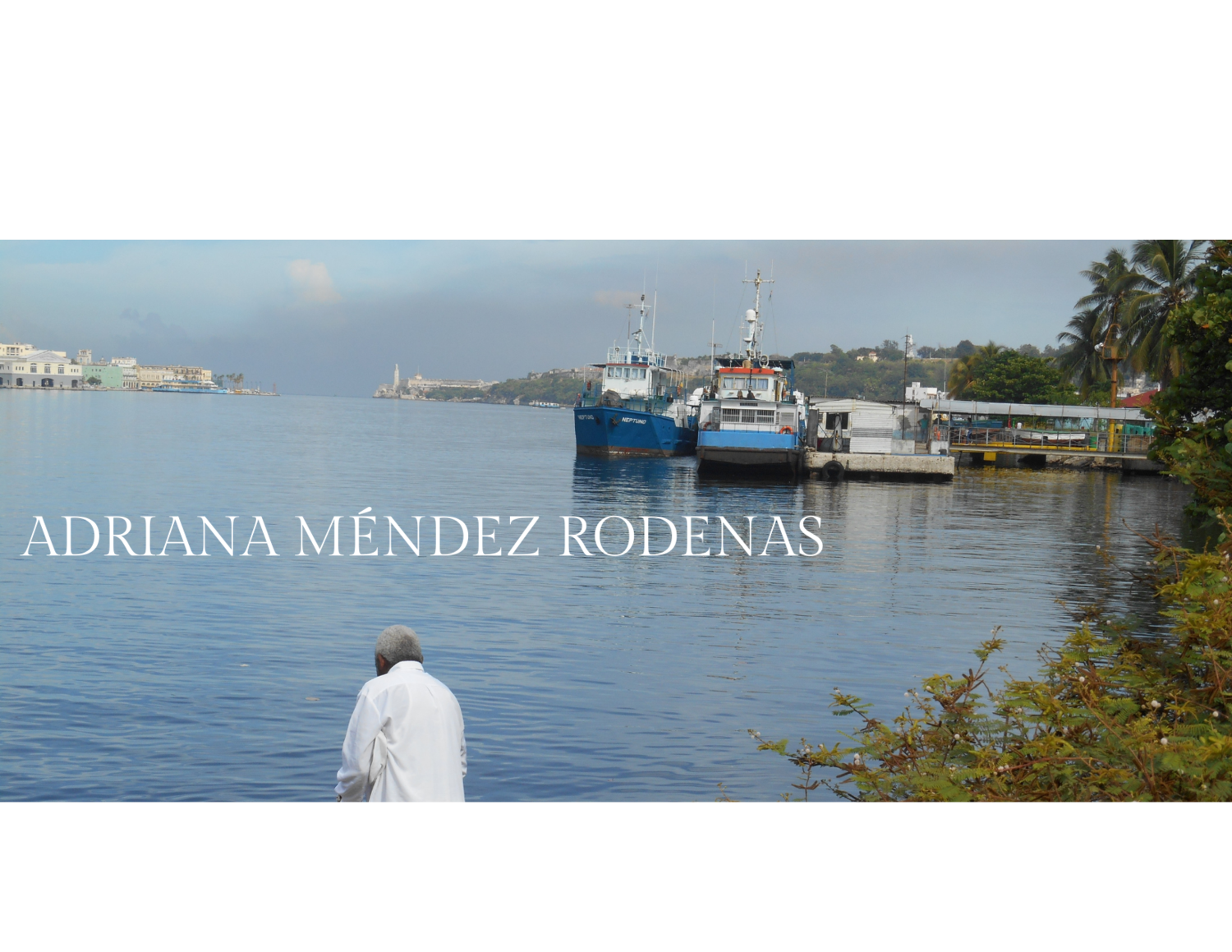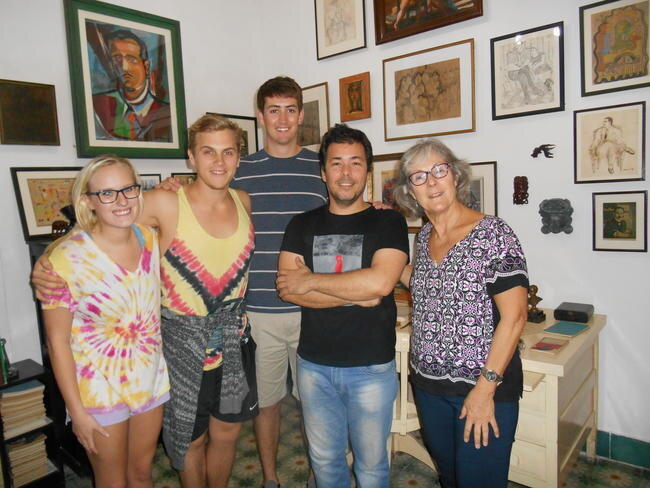
Photo by Adrian Fuentes Mederos ©
ABOUT
Adriana and a group of University of Iowa students on a study abroad trip to Cuba, 2015.
Adriana presenting her work “Mapping Colonial Havana: The Countess of Merlin’s Voyage of Return” at the XVIII Annual Congress of the Cuban Cultural Center of New York.
Born in Havana, Adriana Méndez Rodenas was raised in northern Kentucky, where her family settled shortly after their arrival in the United States. Drawn to the allure of her native island, she rediscovered Spanish during her undergraduate years at the University of Cincinnati. She then received a master’s in Romance Studies at Duke University and a PhD at Cornell University. Her dissertation on the novel of the Cuban revolution was an effort to understand a process which had such lasting effects on her life. With a Lincoln-Juárez Fellowship, she went to Mexico City as a researcher at El Colegio de México, what opened Latin American culture first-hand and gave her the opportunity of traveling frequently to Cuba.
In 1985 she returned to the United States to take up a position at the University of Iowa. Currently, she is professor of Caribbean and Latin American literatures in the School of Languages, Literatures and Cultures at the University of Missouri. Her books and articles on la condesa de Merlin and Gertrudis Gómez de Avellaneda have resurrected these two pivotal figures in nineteenth-century Cuban literature.
An expert on travel writing, she published Transatlantic Travels to Nineteenth Century Latin America: European Women Pilgrims (2014), a study of women’s travels to Mexico, the Caribbean, the Andean region, and South America before and after Independence from Spain, a book supported by an NEH Fellowship for University Teachers (2002-03). Her edited issue of Review—Literature and the Arts of the Americas (2012), follows the trail of “Women Travelers to Latin America” in essays as well as creative fiction. Begun while a Fulbright Distinguished Chair of American Studies at Uppsala University (2008-09), her book-in-progress, Transatlantic Sketches: Fredrika Bremer’s American Travels and the Iconography of the Plantation, traces the Swedish novelist’s epistolary account of her residence in the Eastern seaboard and the ante-bellum South, then follows the Swede’s trail to Havana and the sugar fields of Matanzas.
Inspired by the ecological turn in literary studies, she is currently engaged in a study of Caribbean ecologies that shifts attention from the prevalent trope of insularity to a less well-known geography: the limestone caves that served as ceremonial sites for the indigenous Taínos and as refuge for runaway slaves. A project supported by the Huntington Library and the Notre Dame Institute for Advanced Study, the study of caves in the Caribbean Imaginary also includes the visual arts. To this end, she and artist Aurora de Armendi co-authored Mythologies of Return: Revisiting Ana Mendieta’s Rupestrian Sculptures (2014), a visual/literary exploration of Ana Mendieta’s sculptured series honoring the Taíno legacy as well as Cuban cultural memory.



